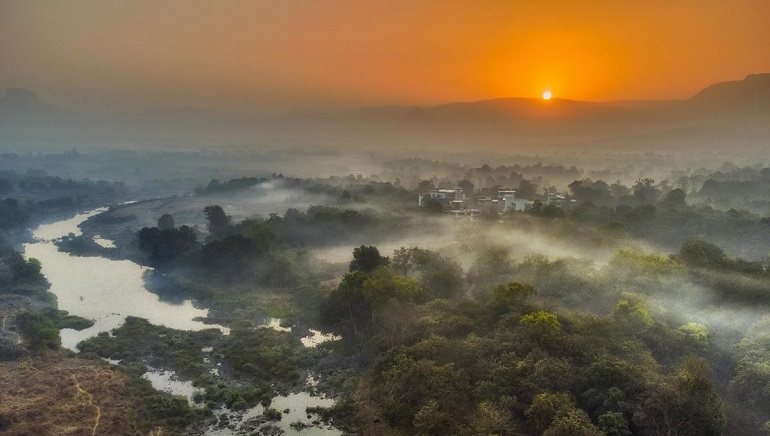Scientists at the Agharkar Research Institute (ARI) in Pune have discovered a new low-altitude basalt plateau in the Thane region of the Western Ghats. The plateau is now listed as the fourth plateau-type in the mountain range. It houses 76 plant and shrub species from 24 families that the scientists say can hold clues to the impact of climate change on the survival of species.
Earlier, there were three known plateau types in the Western Ghats, namely, high-altitude laterite plateaus, low-altitude laterite plateaus, and high-altitude basalt plateaus. “We have only recently discovered that there is a fourth type here, the low-altitude basalt plateau,” said Dr Mandar Datar, lead scientist of the study.
The scientists have discovered the rare low-altitude basalt plateau in Manjare village of Thane. Surveying the plateau, the team documented various species of plants and shrubs from different families. The researchers believe this is an important discovery, as the plateau shares vegetation with the three other rock outcrops, concurrently holding a few unique species. This gives a unique model system to study the species’ interactions in varying environmental conditions. The ARI team was studying how exactly these plants survived in such hostile conditions and if there was a genetic component as well to their survival.















